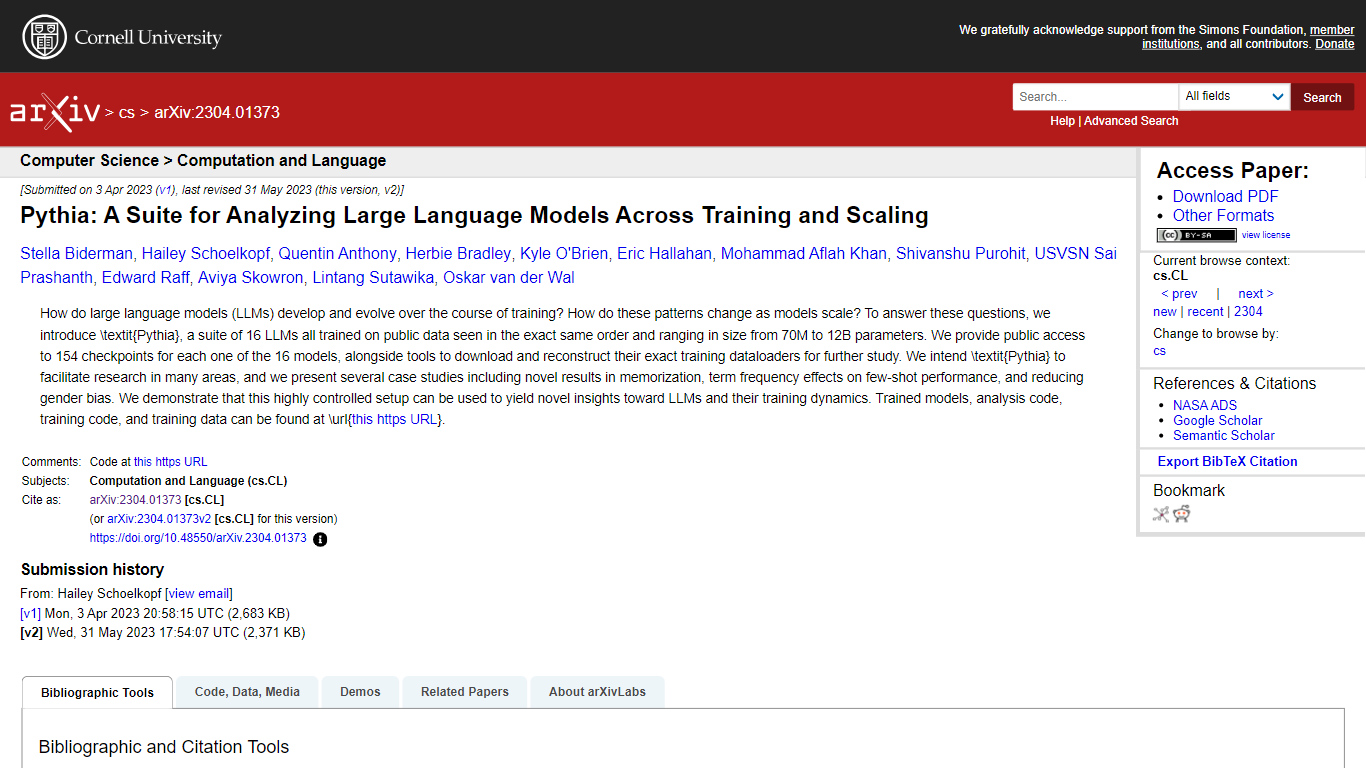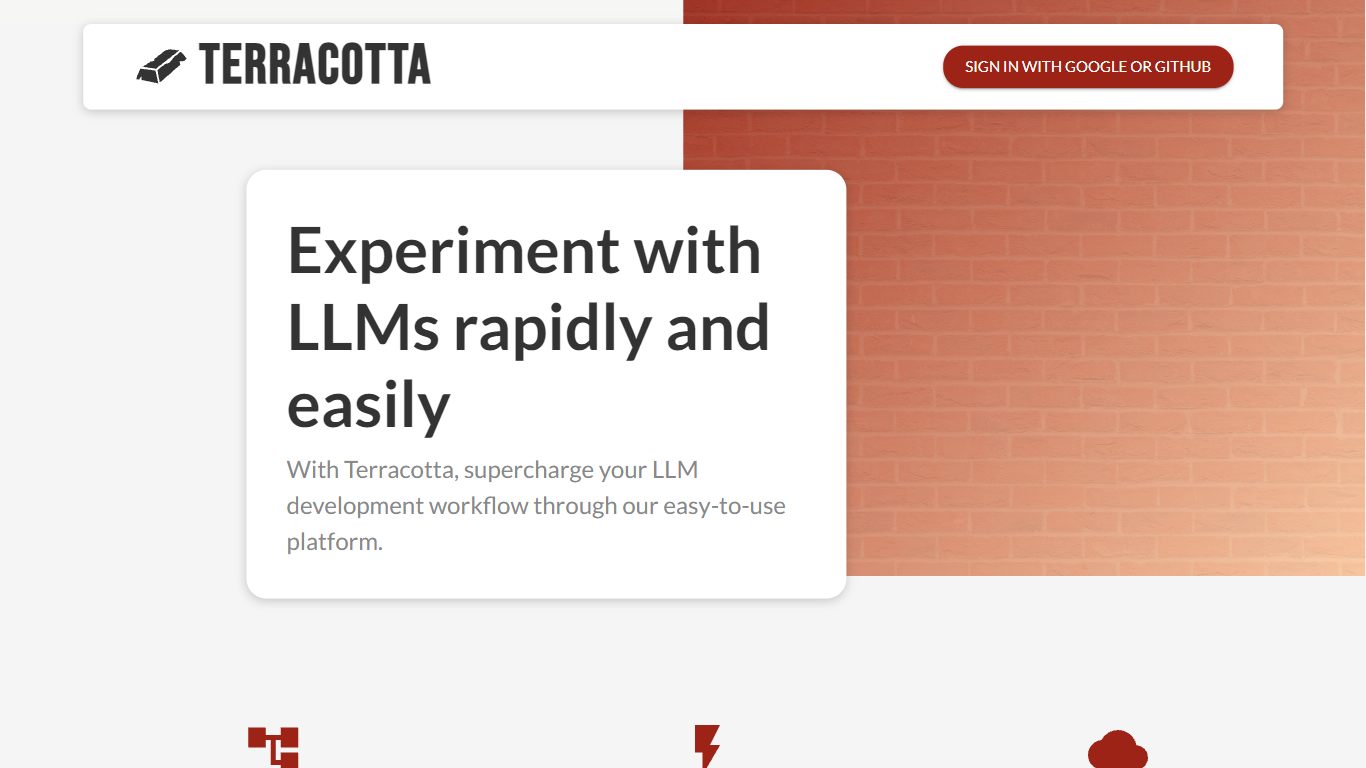Pythia vs Terracotta
In the battle of Pythia vs Terracotta, which AI Large Language Model (LLM) tool comes out on top? We compare reviews, pricing, alternatives, upvotes, features, and more.
Between Pythia and Terracotta, which one is superior?
Upon comparing Pythia with Terracotta, which are both AI-powered large language model (llm) tools, Neither tool takes the lead, as they both have the same upvote count. Every vote counts! Cast yours and contribute to the decision of the winner.
Does the result make you go "hmm"? Cast your vote and turn that frown upside down!
Pythia

What is Pythia?
Pythia is an extensive suite designed to analyze the development and scaling of large language models (LLMs). It comprises 16 models, each trained with public data in a consistent order, featuring sizes ranging from 70 million to 12 billion parameters. The project provides public access to 154 checkpoints per model, as well as tools to reproduce training data loaders for in-depth research. Pythia aims to aid various research domains with case studies on topics like memorization, the impact of term frequency on few-shot learning, and strategies for mitigating gender bias. This carefully controlled environment offers unique insights into the training dynamics of LLMs. The suite includes trained models, analysis code, training code, and data, all accessible via its GitHub repository.
Terracotta

What is Terracotta?
Terracotta is a cutting-edge platform designed to enhance the workflow for developers and researchers working with large language models (LLMs). This intuitive and user-friendly platform allows you to manage, iterate, and evaluate your fine-tuned models with ease. With Terracotta, you can securely upload data, fine-tune models for various tasks like classification and text generation, and create comprehensive evaluations to compare model performance using both qualitative and quantitative metrics. Our tool supports connections to major providers like OpenAI and Cohere, ensuring you have access to a broad range of LLM capabilities. Terracotta is the creation of Beri Kohen and Lucas Pauker, AI enthusiasts and Stanford graduates, who are dedicated to advancing LLM development. Join our email list to stay informed on the latest updates and features that Terracotta has to offer.
Pythia Upvotes
Terracotta Upvotes
Pythia Top Features
Suite for Analysis:** A comprehensive set of tools for conducting research on LLM training and scaling.
Size Variety:** LLMs ranging from 70M to 12B parameters, providing insights across different model scales.
Public Checkpoints:** Access to 154 checkpoints for each of the 16 LLMs.
Research Facilitation:** Tools and code for reconstructing training dataloaders to promote further study in the field.
Case Studies:** Presentation of case studies including findings in memorization, few-shot performance, and bias reduction.
Terracotta Top Features
Manage Many Models: Centrally handle all your fine-tuned models in one convenient place.
Iterate Quickly: Streamline the process of model improvement with fast qualitative and quantitative evaluations.
Multiple Providers: Seamlessly integrate with services from OpenAI and Cohere to supercharge your development process.
Upload Your Data: Upload and securely store your datasets for the fine-tuning of models.
Create Evaluations: Conduct in-depth comparative assessments of model performances leveraging metrics like accuracy BLEU and confusion matrices.
Pythia Category
- Large Language Model (LLM)
Terracotta Category
- Large Language Model (LLM)
Pythia Pricing Type
- Freemium
Terracotta Pricing Type
- Freemium
